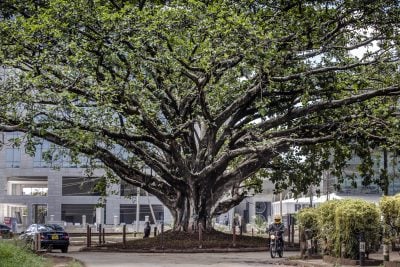Where Credit is Due: How Africa’s Debt Can Be a Benefit, Not a Burden is a very readable, in-depth look at the history and trends of government-issued sovereign debt in Africa, giving policy recommendations on how African governments can make the best of use of debt.
The book covers all Africa instead of splitting North and sub-Saharan Africa and it focuses on the government debts that shape economies and development, not on corporate bonds.
Economist Gregory Smith’s career spans being an advisor to African governments (such as Zambia in the early 2000s, at the Overseas Development Institute), an investment expert, and a sovereign debt analyst at the World Bank, where he did spells covering East Asia an Africa. He is currently an emerging markets fund manager at M&G Investments in London.
To research the book he travelled to 26 countries, and draws on his experience of living in Kampala, Dar es Salaam, Harare and Lusaka. It covers events up to the first half of 2021, including how much the pandemic and its related economic catastrophes, such as for economies that rely on tourism, have reshaped the debt landscape.
The book is populated with quotes from African policy leaders and has a welcome focus on the progress being made in many African countries and institutions.

Debt successes and debt crises
It is hard to squeeze so many countries into one analysis. Smith distinguishes three kinds, according to how much they access international capital markets. Each of the earlier chapters has two country studies. The debt histories of 20 very different African nations are tackled in all, with Smith explaining developments as they occurred.
The overview of the changing debt landscape over the decades shows how and when debts were run up, as well as covering global debt forgiveness campaigns such as Jubilee 2000, or the Brady bonds programme which first introduced African debt to many global traders. It leads up to the concern that has grown since 2017 about a new debt crisis emerging and whether old fixes would work.
On the positive side, the face of debt continues to change, with increased transparency through Eurobond documentation, credit ratings and other reports. Rwanda provides a positive example, with its detailed planning of the projects into which it would invest the proceeds of its 2013 Eurobond, and subsequent reporting of progress.
The dark side was dramatically illustrated as this review went to press. UK, US and Swiss regulators fined the bank Credit Suisse $475m for wire fraud over Mozambique’s opaque $2bn tuna bond scandal. The issue deepened the country’s financial crisis and involved $500m of unaccounted-for funds and $50m in bribes to bankers. Credit Suisse also agreed to forgive $200m of debt.
Smith charts China’s growing influence and the impact of its non-disclosure agreements, which made it hard for Zambia to reschedule its debts in 2020 because other lenders demanded transparency. He also highlights how much practical infrastructure China has financed, often on concessional terms, which is growing economies, as well as China’s participation in debt forgiveness.
Debt fixes
Part Two provides an insightful overview of when debt has succeeded and when it has caused problems. It goes into the causes and solutions of the debt crises of the 1980s and the 1990s. There is analysis of how much debt countries should aim to afford, with a focus on fund flows, not percentages of GDP.
Previous debt fixes are unlikely to work now, especially if they impact African nations’ access to global capital, as we saw with the hesitancy to accept pandemic debt offers in case that triggered default clauses on global bonds.
Better borrowing
Smith summarises some best practices for better borrowing in Part Three, how to avoid and fix debt crises, and the steps to ensure debts play their proper role in funding productive growth instead of becoming a burden. It has been stated many times before: African leaders need to make sure money is spent productively and that governance and accountability are tight.
Governments, donors and lenders are working together on building expertise for effective debt management offices for selecting projects, managing national debt and ensuring funds are spent effectively.
As investors focus on environmental, social and governance (ESG) issues, African governments are attracting impact investors by measuring the positive effects of borrowing on people, climate change (green bonds are sprouting), jobs and poverty, and linking their activities to meeting the UN’s Sustainable Development Goals by 2030.
Where Credit is Due: How Africa’s Debt Can Be a Benefit, Not a Burden is published by Hurst Publishers.
Want to continue reading? Subscribe today.
You've read all your free articles for this month! Subscribe now to enjoy full access to our content.
Digital Monthly
£8.00 / month
Receive full unlimited access to our articles, opinions, podcasts and more.
Digital Yearly
£70.00 / year
Our best value offer - save £26 and gain access to all of our digital content for an entire year!
 Sign in with Google
Sign in with Google 



